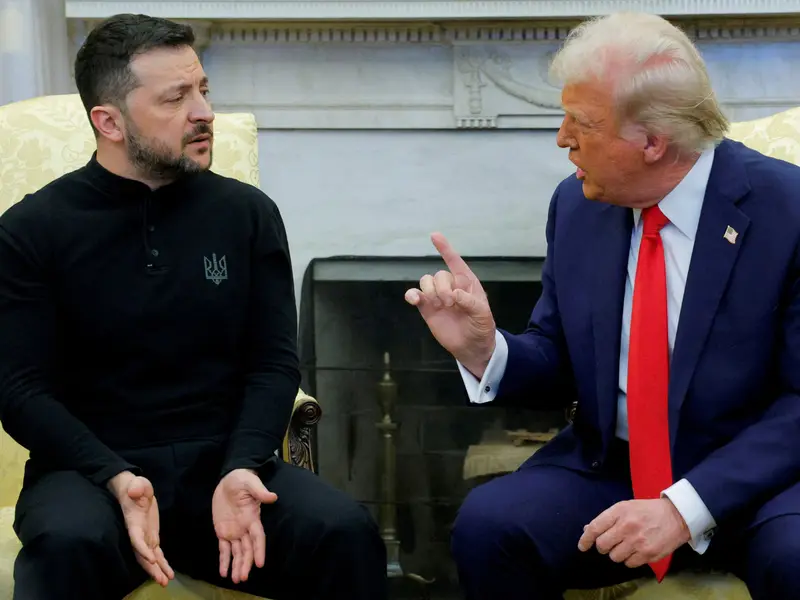US President Donald Trump is set to meet Russian President Vladimir Putin on August 15 to discuss potential resolutions to the ongoing Ukraine conflict. Trump has hinted that the negotiations might involve swapping territories between Russia and Ukraine as part of a broader peace deal. However, Ukrainian President Volodymyr Zelensky has firmly rejected any such notion, underscoring that Ukraine will not compromise its sovereignty or constitutional borders.
Zelensky’s response comes amid circulating reports suggesting territorial exchanges could be on the table in the peace negotiations. The Ukrainian leader insisted that any peace agreement reached without Ukraine’s direct participation would be invalid and ineffective. He emphasized the importance of a “dignified and lasting peace” grounded in respect and collaboration with international allies, including the United States, while making it clear that peace terms should not be dictated by Russia.
In a recent post on social media platform X, Zelensky was unequivocal: “Ukrainians will not give their land to the occupier.” He condemned Russia’s ongoing aggression and stressed that the war’s resolution depends on Russia ending the conflict, not on Ukraine making concessions. Zelensky pointed out that Ukraine’s constitutional boundaries already provide the framework for resolving territorial disputes, dismissing any attempts to alter these borders through negotiation.

The upcoming Trump-Putin summit was officially confirmed on August 8 by the Kremlin, which stated that the meeting aims to explore long-term peaceful solutions to the Ukrainian crisis. Putin’s aide Yuri Ushakov noted that the discussions would concentrate on potential pathways to peace. Trump announced the meeting will take place in Alaska and suggested that land exchanges could be part of the deal. Previously, the US had proposed a trilateral summit including Zelensky, but Putin expressed reservations about meeting the Ukrainian president at this stage. Russia also proposed holding talks in the UAE.
The move toward direct talks followed a productive meeting between Putin and Trump’s envoy, Steve Witkoff, on August 6 in Moscow. The Kremlin described the discussions as “constructive” and lasting over three hours. Trump later praised the encounter as “highly productive,” claiming significant progress was made. Meanwhile, US Secretary of State Marco Rubio indicated that the administration now better understands the conditions Russia might require to cease hostilities. He highlighted that territorial issues would likely be central to any peace agreement.
Critical Perspective:
While the Trump-Putin meeting could potentially open new diplomatic channels, Zelensky’s firm stance underscores the complexity and sensitivity surrounding Ukraine’s sovereignty. Any negotiation involving territorial concessions risks undermining Ukraine’s national integrity and could set a precedent with broader geopolitical consequences. The exclusion of Ukraine from key talks raises questions about the legitimacy and sustainability of any peace deal brokered without its full involvement. Moreover, Putin’s reluctance to meet Zelensky hints at ongoing distrust and deep divisions that complicate the peace process. Ultimately, the success of these negotiations depends not only on diplomatic maneuvering but also on genuine commitment from all parties to respect Ukraine’s independence and territorial integrity.


